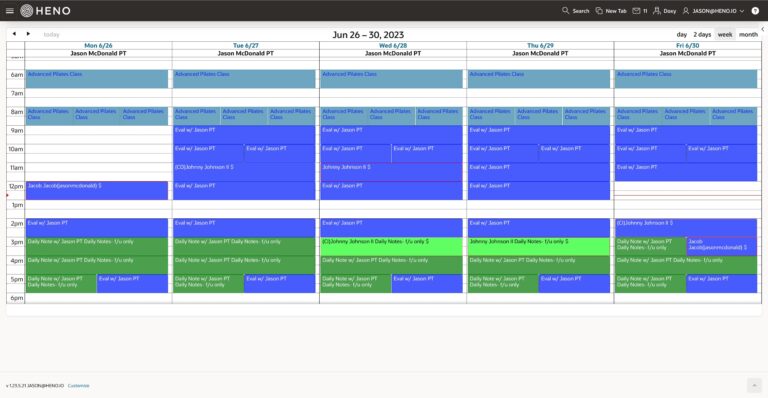Physical Therapy Practice: 5 tips for finding the best receptionist
Everyone knows that the person you choose to be at your front desk is the first impression for your company. Who you select for this position could actually make or break your business.
Think back to a time when you’ve gone into a doctor’s office and the receptionist appeared to be too busy to greet you, was rude, or took a really long time to even acknowledge you existed in their office. That’s what you don’t want!
After spending 8 years in private practice and interviewing, hiring, and firing so many receptionists that I can’t count, I would like to think that I now have a better method for this madness. Here are a few tips that I’ve developed over the years to determine how well they will work out BEFORE you put time and energy into them.
- Posting the position – You don’t need to spend a ton of money on advertising; you can really spend $0 on this and still find amazing candidates. On Indeed.com you can have the candidates you choose to answer questions on the phone; so you can hear their voice and how they sound, which can be very telling. If they are slow to respond, toss them. Word of mouth candidates are actually very powerful too. If a reputable source recommends someone to you, check them out!
- Screening Process – It can be so tedious to go over tons of resumes, and typically with a position like this there are hundreds. Just because someone’s resume looks outstanding does not mean they will be a good fit, but their experience is important. Look for past jobs that have a similar dynamic as your clinic. If you have a really busy, fast-paced office, you want someone that has worked in a setting like that before. If it’s a slower, more laid back environment then maybe their office setting experience doesn’t matter that much; but you’d want to make sure they are more of a self-starter and take initiative during the lulls to be productive. Having medical office experience does help make the training process easier, but I don’t make it required. If you’re a fast learner and are eager to learn, then that is just as important to me.
- Interview Process – Involve your current team as much as you can during this process. You aren’t the only one that will be working with this new employee, so really value the input from your staff to help you narrow down your candidates. We’ve also gone as far as to have some of our staff members conduct phone interviews to further narrow down who you’re going to ask to come into the office. Have your team come up with questions that they will ask on their own; ideally about how the new candidate will help to positively impact their role in the company. I am looking for someone that can engage with everyone present in the interview; not someone that is going to answer every question and only make eye contact with me; I hate that. And personally, if someone is late to an interview or not dressed professionally, they’re immediately off the list! Those are two issues that I do not want to waste time on if they end up working for me; first impressions mean a lot to me.
- Final Selection – Make this a team effort. You as the owner, should be the deciding factor, but allow your team to cast their vote on who they think will fit in best. Learning how to schedule and handle insurance information can be learned; but personality, compassion, and an outgoing, happy demeanor cannot. If you’re unsure, call them back in for a second “working interview”, and have them sit up front with the current team and see how they interact with patients. This can be extremely helpful!
- Trial Period – Make sure the folks on your team that are training the new employee have a timeline in place for determining whether or not this was the right choice. Have them pick whether they think 2 weeks, 1 month, 2 months is enough time to decide if this is going to be the best choice. If it doesn’t work, don’t worry, cut your loss sooner than later and start over again. Everyone involved in this process gets better at it each time.
In the last year I have been able to step further away from participating in this process with the support team. It doesn’t matter if I like the candidates. What matters is if my team meshes well with them and they are all receptive towards each other, creating a much easier training environment. And their customer service skills matter.
I hope this will bring a few key points to light when making your first few hires; and don’t get discouraged if you don’t make the perfect decision.
{{cta(‘5ff4c278-0ba6-49ca-bac0-9e7521d954f7’)}}




